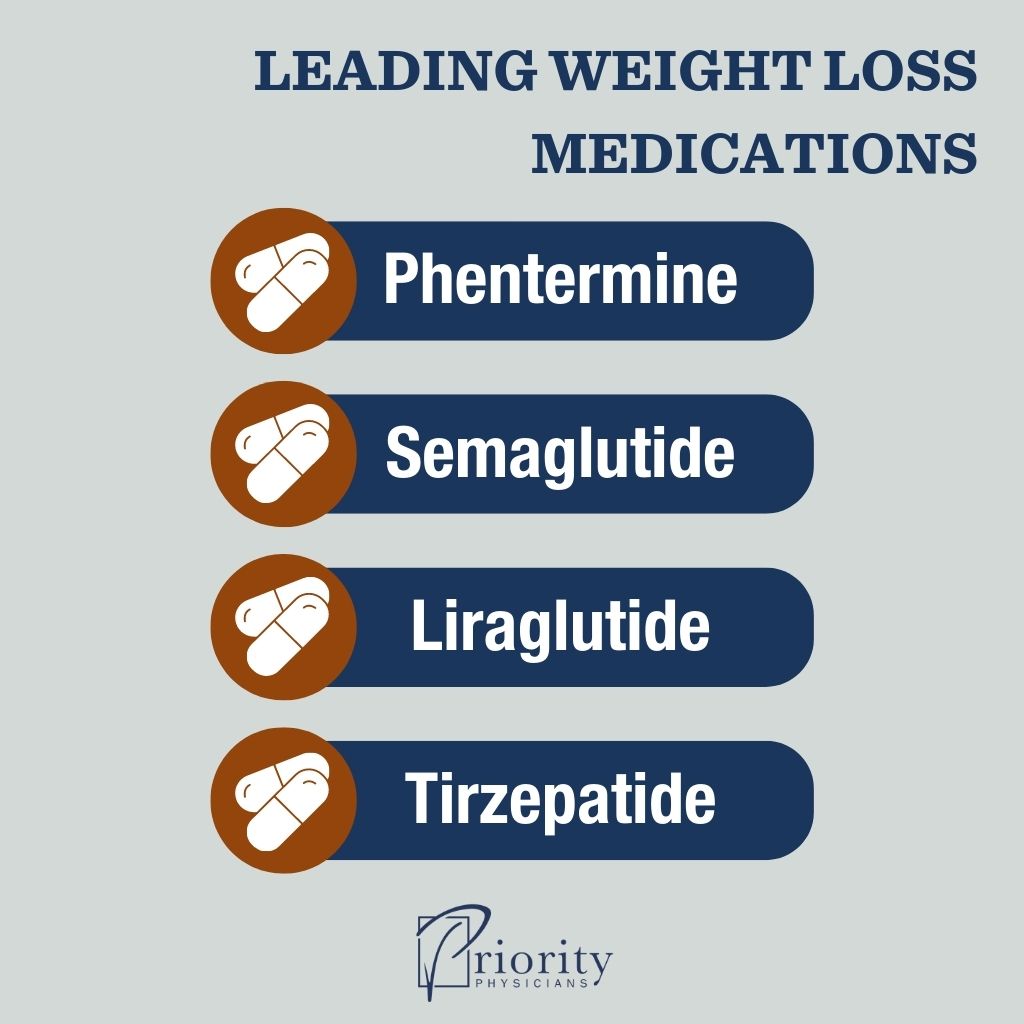Obesity is a chronic disease that has many negative impacts on the body. Weight loss can be incredibly helpful to patients with obesity. It can reduce blood pressure, lead to fewer joint and body pains, and improve sleep quality.
Several recent developments in medications to assist in weight loss are showing great promise in obesity treatment.
Lifestyle modifications — healthy eating, regular exercise, good sleep habits, and stress management — are still key to achieving and maintaining a healthy weight. But these new medications help by reducing appetite and making dietary modifications much easier to accomplish.
Weight loss medication can make lifestyle changes easier to implement, but to see lasting results, you still have to put in work. Because obesity is a chronic disease, these medications may need to be used indefinitely.
Some of these new medications under review for approval work better than anything we’ve ever had before. We can consider weight loss medications for anyone with a BMI over 30, or a BMI over 27 along with comorbidities like diabetes, sleep apnea, or high blood pressure.
(The usefulness of the BMI metric as a health screener is a different debate. But it’s generally the metric insurance companies use to judge coverage approvals.)
Let’s look at some notable weight loss medications.
What Are the Leading Drugs for Medical-Assisted Weight Loss?

Phentermine
Phentermine has been around for years. It’s a relatively inexpensive stimulant that reduces appetite, taken daily in the form of an oral tablet.
Phentermine can be a helpful tool, but its results are very modest, and it can lose its effectiveness over time. Most people take it over a short period when starting a new eating plan.
Semaglutide
At the moment, semaglutide is easily the most hyped medication on this list. It’s a GLP-1 inhibitor, distributed in the form of a weekly self-injection, that works to both make you feel full and reduce your body’s hunger signals.
The same drug is labeled under a few different brand names, including:
Semaglutide can lead to very significant weight loss, but it can also lead to gastrointestinal side effects like nausea, vomiting, and constipation. It can also be expensive, and insurance doesn’t always cover it.
At the moment, semaglutide is in limited supply and can be difficult to obtain.
Liraglutide
Liraglutide, a daily self-injection, is another GLP-1 inhibitor that works to both make your body feel like it’s full and reduce your hunger signals. It’s been approved for weight loss by the FDA.
Labeled under the brand name Saxenda, liraglutide can lead to significant weight loss. However, the idea of self-injecting daily can be off-putting to many people.
Tirzepatide
Distributed in the form of a weekly injection, tirzepatide is an FDA-approved drug for managing diabetes, and is currently seeking approval for use in weight loss cases. It’s a GIP/GLP-1 inhibitor also labeled under the brand name Mounjaro.
Studies show tirzepatide has dramatic effects on weight loss, but it can be expensive, and it’s not always covered by insurance. It can also have gastrointestinal side effects, like nausea, vomiting, and constipation, and it isn’t currently approved for weight loss purposes.
Medical-Assisted Weight Loss: Final Thoughts
For those with obesity, especially those with other comorbid conditions, medical-assisted weight loss with these medications offers an exciting opportunity. You’ll still have to put in work with lifestyle modifications, but these can make it easier.
The scarcity of some of these weight loss medications can complicate weight management plans. Thankfully, manufacturers assure us they’ll be able to ramp up production to meet demand shortly.
Also, these medications may not be appropriate for everyone. Talk to your doctor about your specific circumstances and health background before deciding whether one of these medications is right for you.

